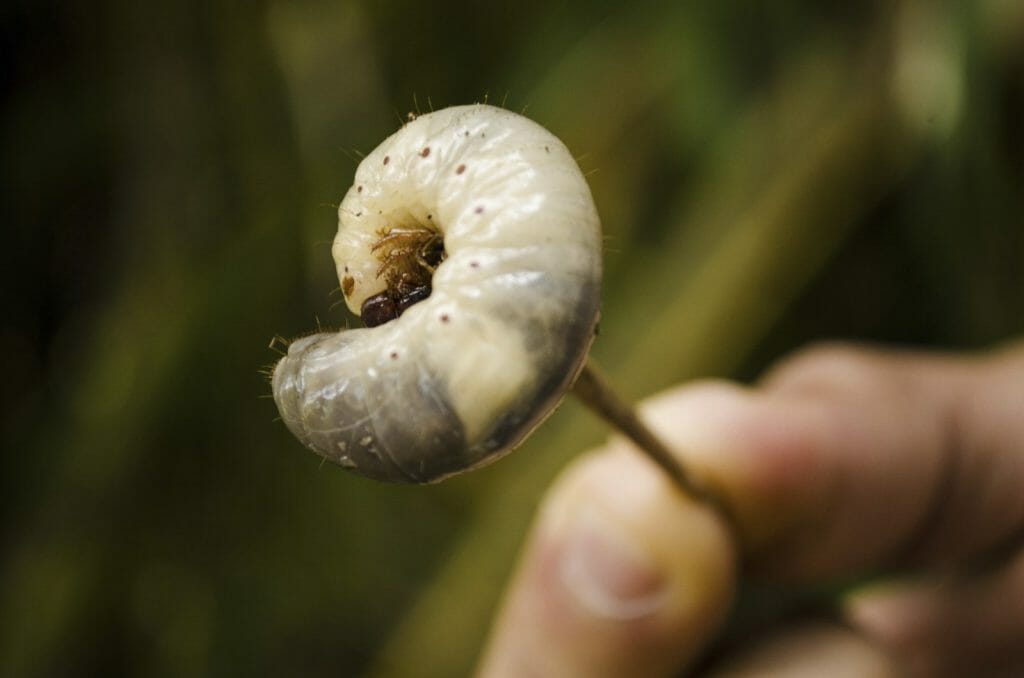As a founding employee of Gardeners Supply, I wore many different hats over the years. Currently, I have my own company called Johnnie Brook Creative. The gardens around my home in Richmond, VT, include a large vegetable garden, seasonal greenhouse, cutting garden, perennial gardens, rock garden, shade garden, berry plantings, lots of container plants and a meadow garden. Theres no place Id rather be than in the garden. If youd like to learn more, check out this January 2021 video interview by Garden Gate magazine.
There are lots of great reasons to make your yard and garden more welcoming to birds. But heres one more: pest control.
Most backyard birds eat a combination of seeds, berries and insects. But in late spring and early summer, birds are busy filling the mouths of their hatchlings, and baby birds like nothing better than freshly caught bugs.
Thats good news for gardeners, because garden pests are usually at their peak in late spring and early summer. Our bird friends can save us lots of headaches by combing our gardens for cabbage worms, whiteflies, aphids, earwigs, grasshoppers, cucumber beetles and grubs!
Below is a list of common backyard birds and the pests they eat. But first, a few tips on how to make your yard bird-friendly during the spring and summer months.
When designing a landscape to attract birds, its important to provide places where they can hide or take cover from the weather. During the spring and summer, birds also need nesting sites. Twiggy shrubs and small trees offer many appealing nesting options. If your landscape is always tidy and well coiffed, you might consider designating one area that can be allowed to develop more naturally. Remember that more nesting birds means more hungry mouths to feed and more doting parents combing your yard for food.
Birds are attracted to water for drinking and bathing especially if that water is moving. If you already have a birdbath, consider adding a bubbler to it. If you dont already have a birdbath, think about an outdoor fountain instead. Youll provide the attraction of moving water, while adding an appealing sculptural feature to your garden as well. Installing a small pond with a solar fountain or a re-circulating waterfall will draw birds from blocks away.
Most people, who feed birds, put their feeders away once warm weather arrives. But even birds that spend most of their time eating insects enjoy the occasional snack. Keep at least one feeder filled with a quality seed blend that will appeal to chickadees, grosbeaks, cardinals and sparrows. Also consider non-melting suet cakes that will keep titmice and woodpeckers coming to your yard. While theyre in the area, theyll munch on insect larvae and other delicacies.
Below is a list of common backyard birds and some of the insect pests they eat. Next time you see or hear a bird in your yard, you can breathe a sigh of relief, knowing that theyre on your side, helping you keep your garden healthy and looking good.
What if Birds Are Digging up My Lawn?
It’s normal for a few birds to dig occasionally, so there’s no need to be concerned.
They are eating things that you probably shouldn’t have on your lawn in the first place and naturally aerating it.
However, if there are numerous birds and possibly even a few mammals present and they are causing real harm, this suggests that there is probably a problem.
If birds are “digging” in your yard, it’s usually because they’re looking for lawn grubs.
What are Lawn Grubs?
Grubs are nasty creatures that can survive for years just beneath the surface of the ground and consume the roots of even the healthiest lawns.
The larvae of June bugs and Japanese beetles are the most frequent damaging grubs in lawns. These are tiny, white or yellow worms that resemble fatter maggots.
They can cause a lot of damage to a lawn, and it can be very challenging to eradicate an infestation once it has started.
By the way, birds can benefit greatly from eating grubs and maggots.

Getting Rid of the Grubs
First, you want to fight grubs with worms. But not any old worm, you need Nematodes.
These are readily available larvae that eat grubs without harming your lawn or the environment. You can find them at most lawn care establishments.
Just disperse the larvae throughout your lawn and allow nature to work its magic.
The next step is to apply castor oil granules all over your lawn. Not the oil!.
Finally, employ milky spore to aid in the destruction of white Japanese Beetle grubs, which are the most prevalent defoliators of lawns.
One fantastic benefit of this treatment is that after you go through the process, the milky spores will continue to keep your lawn grub-free for up to 15 years, even though you will need to apply them to your lawn a few times a year for a few years.
Although these methods require a year or more, they are the safest for managing grub problems and are strongly advised over chemical solutions.

FAQ
Are grubs good for birds?
What animals eat grub worms?
What are the natural predators of grubs?
Do birds dig for grubs?